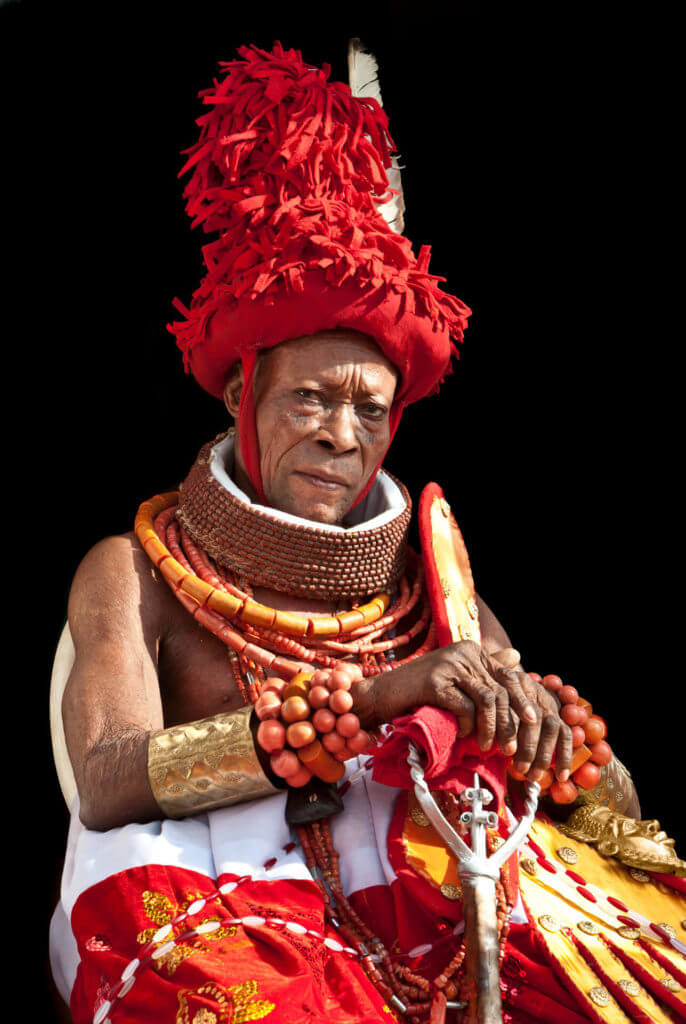
Edo Benin Kingdom

At the annual Igue ceremony the king, or Oba, of Benin honors his ancestors with a spectacular series of rituals that date from the fifteenth century. In coral-beaded regalia, accompanied by his entourage of chiefs, he purifies the land and renews the strength of his kingdom in a magnificent five-day ceremony.
After a decade of many efforts to visit Oba Erediauwa in Nigeria, quite by chance we were introduced to his nephew and within twenty-four hours we were directly in touch with the palace. After sending our double-volume book, African Ceremonies, to the Oba, we received an official, stamped letter from the king himself, with a gracious invitation to attend his next Igue ceremony.
Thousands attend the festival where the Oba is anointed with chalk and the blood from thirteen sacrificial bulls to protect his kingship and his nation. Blood is believed to purify the kingdom of evil and wrong doers.
For hours we watched processions of chiefs, heralded by ivory trumpets, enter the royal palace to pay homage to the Oba. Chiefs were dressed in flowing gowns, bedecked with rope necklaces of precious coral. Some wore layered costumes of bright red cloth that imitated the natural armor of the scaly pangolin.
The Edo Kingdom of Benin, Nigeria, is renowned for its antique bronze sculptures and ivory carving which are some of the most important and valuable works of Africa. These artefacts glorified the Oba of Benin as the political and spiritual head of his people, and honoured his ancestors.
Close by to the palace was the street of bronze casters, a guild existing since the thirteenth century and specializing in the lost-wax process, called cire perdue – a process which is believed to have originated in Benin City. We watched bronze heads and wall plaques being cast in traditional style—many in imitation of Benin’s great historical works of art that have decorated the palace walls for centuries. In the invasion of 1897, British forces pillaged three thousand priceless works of bronze and ivory from the palace. These stolen items—among the most famous of all of Africa’s artworks—are now displayed in prominent museums around the world. The important issue of repatriation of these objects is under discussion today.

At the annual Igue ceremony the king, or Oba, of Benin honors his ancestors with a spectacular series of rituals that date from the fifteenth century. In coral-beaded regalia, accompanied by his entourage of chiefs, he purifies the land and renews the strength of his kingdom in a magnificent five-day ceremony.
More...
At the annual Igue ceremony the king, or Oba, of Benin honors his ancestors with a spectacular series of rituals that date from the fifteenth century. In coral-beaded regalia, accompanied by his entourage of chiefs, he purifies the land and renews the strength of his kingdom in a magnificent five-day ceremony.
More...
